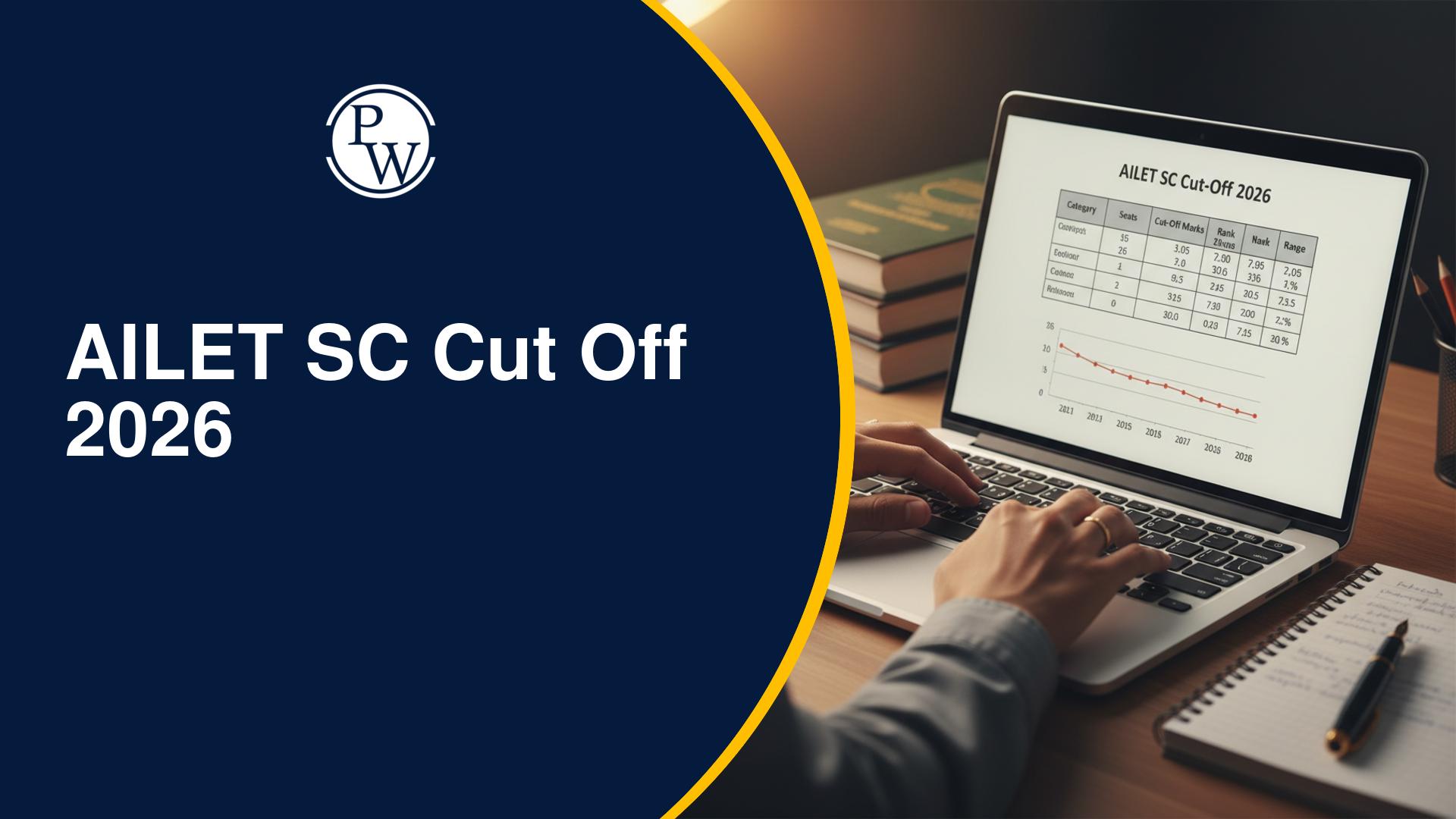
CLAT 2026 Preparation Strategy for Science Students : The Common Law Admission Test (CLAT) is among the most competitive exams for students seeking admission to top law schools in India. Traditionally, the exam is dominated by students from Humanities or Commerce backgrounds, but CLAT 2026 Preparation Strategy for Science Students too, with the right approach and strategy. While the law entrance test may seem daunting due to its emphasis on subjects like Legal Aptitude, General Knowledge, and English, Science students are often well-equipped to succeed due to their strong foundation in analytical thinking, logical reasoning, and problem-solving skills.
With the right preparation strategy tailored to their strengths, Science students can excel in the CLAT 2026 exam . This article outlines a comprehensive preparation plan, focusing on each section of the exam and highlighting the CLAT 2026 Preparation Strategy for Science Students by leveraging their unique abilities and adopting a disciplined approach to study.Can a Science Student Attempt CLAT 2026 Entrance Exam?
Science students are absolutely eligible to attempt the CLAT 2026 entrance exam without any stream-specific restrictions. The CLAT eligibility criteria do not mandate any specific academic stream, meaning students from Science, Commerce, Arts, or any other recognized board can apply for the exam. Candidates must have passed their 10+2 or equivalent examination with the required minimum marks - 45% for General/OBC/PWD/EWS categories and 40% for SC/ST categoriesCLAT 2026 Preparation Strategy for Science Students Pro and Cons
Science students can successfully prepare for the CLAT 2025 exam by leveraging their analytical and problem-solving skills. Here’s a breakdown of the pros and cons of CLAT 2026 Preparation Strategy for Science Students: Pros :- Quantitative Aptitude : CLAT 2026 Preparation Strategy for Science Students are comfortable with quantitative analysis, which can be beneficial in sections that require numerical reasoning.
- Research Skills : Science education emphasizes research and data analysis, skills that can aid in understanding legal principles and case studies.
- Adaptability : CLAT 2026 Preparation Strategy for Science Students are accustomed to adapting to new concepts and methodologies, which can help them transition into the study of law.
- Interdisciplinary Approach : The ability to integrate knowledge from various fields can provide a unique perspective on legal issues, especially in areas like environmental law or technology law.
Also Check : CLAT 2025 Exam Analysis With Detailed Answer Key and Explanations
Cons :- Lack of Legal Knowledge : CLAT 2026 Preparation Strategy for Science Students may initially lack foundational knowledge of legal principles, which could require additional effort to master.
- Different Study Techniques : The study methods used in science may not directly translate to law, necessitating a shift in approach to reading and understanding legal texts.
- The pressure of competition : The CLAT exam is highly competitive, and science students may feel pressure to perform against peers who have a background in humanities or commerce.
Also Check: How to Prepare for CLAT 2025
Section-wise CLAT 2026 Preparation Strategy for Science Students
The Common Law Admission Test (CLAT) is one of the most sought-after exams for students aspiring to pursue law in top universities across India. While the exam is predominantly associated with students from a Humanities or Commerce background, CLAT 2026 Preparation Strategy for Science Students too with the right approach and preparation. Although Science students might not have a natural inclination toward subjects like Legal Aptitude or General Knowledge, they possess analytical and problem-solving skills that can give them an edge. Here’s a comprehensive CLAT 2026 preparation strategy for Science students, broken down into sections.1. English Language
Key Skills: Reading comprehension, vocabulary, grammar, and inference. Science students often excel in logical thinking and problem-solving, which can be useful when tackling the English section of CLAT. English proficiency primarily revolves around reading comprehension, vocabulary, and grammar. Although the content is not science-heavy, a scientific mindset helps in logically analyzing the passages and understanding the nuances of the questions. Preparation Strategy:- Read regularly : Make reading a daily habit. Choose diverse materials, including newspapers, novels, and academic articles.
- Improve vocabulary : Focus on learning new words every day, especially those commonly used in legal and academic contexts.
- Practice comprehension : Work on past year papers and mock tests to get used to the style of questions. Focus on time management and speed.
- Grammar practice : Focus on sentence correction, subject-verb agreement, and error spotting, which are key areas in CLAT English.
2. General Knowledge and Current Affairs
Key Skills: Retention of facts, awareness of national and international events, and ability to connect facts. For Science students, the General Knowledge section may be challenging due to its reliance on social, political, and economic facts. However, Science students often have the advantage of structured learning, making it easier to build a systematic approach to preparing for this section. Preparation Strategy:- Stay updated : Follow newspapers, legal journals, and credible news websites. Subscribe to daily current affairs quizzes or apps to keep yourself updated.
- Focus on core areas : The CLAT General Knowledge section tests both static GK (history, geography, and political science) and current affairs. While static GK can be tough, for CLAT 2026 Preparation Strategy for Science Students can focus on a structured approach, prioritizing high-yield topics.
- Make notes : Keep notes of important events, discoveries, and laws that are shaping public discourse.
Also Check: CLAT 2025 Exam Centre Changed
3. Legal Reasoning
Key Skills: Analytical reasoning, logic, and understanding of legal principles. The Legal Reasoning section of CLAT tests candidates' ability to understand legal propositions and apply them to given facts. While this may appear tricky for science students at first, they can approach this section with their problem-solving mindset. Preparation Strategy:- Understand legal principles : Begin with the basics of legal terminology and core principles such as the Constitution of India, fundamental rights, and major legal theories.
- Practice with legal passages : Work on passages that explain legal concepts and practice answering related questions.
- Solve mock tests : Practice previous years’ questions and mock tests to get a feel for the types of questions that appear in this section .
4. Logical Reasoning
Key Skills: Deductive reasoning, pattern recognition, and analytical thinking. Science students are naturally skilled in logical reasoning, a key element of the CLAT exam. They are used to solving complex problems, making this section less daunting. The Logical Reasoning section will test your ability to identify patterns, conclude, and reason effectively. Preparation Strategy:- Practice puzzles and patterns : Use logic puzzles, series, and seating arrangement exercises to hone your skills.
- Solve past year questions : The more you practice, the better you'll get at identifying question patterns and solving them efficiently.
- Time yourself : CLAT is a time-bound exam. Practice completing logical reasoning questions within the given time limit to improve your speed.
5. Quantitative Techniques
Key Skills: Basic arithmetic, data interpretation, and mathematical analysis. For CLAT 2025 Preparation Strategy for Science Students, the Quantitative Techniques section might be relatively easier compared to other aspirants, given their strong foundation in mathematics. This section will assess your ability to work with data, percentages, ratios, and basic arithmetic. Preparation Strategy:- Revise basic mathematics : Brush up on topics like percentages, averages, probability, and ratios. Focus on strengthening your calculation speed.
- Work on data interpretation : CLAT often includes data-based questions, so practice interpreting graphs, tables, and charts.
- Solve practice sets : Take mock tests and time yourself while solving questions to increase your accuracy and speed.
6. Time Management & Mock Tests
Key Skills: Focus, discipline, and endurance. One of the most important strategies for cracking CLAT, especially for Science students, is effective time management . While CLAT 2026 Preparation Strategy for Science Students typically excel in logical and mathematical sections, managing time effectively across all sections is crucial to ensure success. Preparation Strategy:- Create a study timetable : Allocate time for each subject based on your strengths and weaknesses. Regular revision is key.
- Take regular mock tests : Simulate the exam environment with full-length mock tests. Analyze your mistakes and work on improving your speed.
- Review and track progress : Regularly assess your progress and tweak your study plan based on what works best for you.
How Science Students Can Crack CLAT 2026: Common Mistakes that Should be Avoided
Science students preparing for CLAT 2026 should be aware of common mistakes that can hinder their success. Here are some key pitfalls to avoid:- Neglecting the Syllabus : Many students overlook the importance of thoroughly understanding the CLAT syllabus. It’s crucial to familiarize yourself with the topics covered in the exam to ensure comprehensive preparation.
- Inadequate Practice : Relying solely on theoretical knowledge without sufficient practice can be detrimental. Regularly solving previous years' question papers and taking mock tests is essential to build confidence and improve time management.
- Ignoring Current Affairs : Current affairs play a significant role in the CLAT exam. Science students often focus on their core subjects and may neglect this area. Staying updated with national and international news is vital for success.
- Poor Time Management : Many students struggle with managing their study time effectively. Creating a structured study plan that allocates time for each subject and sticking to it can help avoid last-minute cramming.
- Overlooking Legal Aptitude : Science students may underestimate the importance of the legal aptitude section. It is essential to dedicate time to understand legal principles and practice related questions.
| CLAT 2025 Important Links | |
|---|---|
| Best GK Books for CLAT 2024 Preparation | 50 Important Legal Maxims For CLAT 2024 |
| CLAT 2024 Final Answer Key (9th Dec) | CLAT Admission Process 2024 |
CLAT 2026 Preparation Strategy for Science Students<span data-sheets-root=
Can a Science student prepare for CLAT?
Can a PCB student pursue CLAT?
Can a Science student take Law after Class 12?
Are there any subject-based challenges for Science students in CLAT?
Is there any age limit for CLAT 2026?









